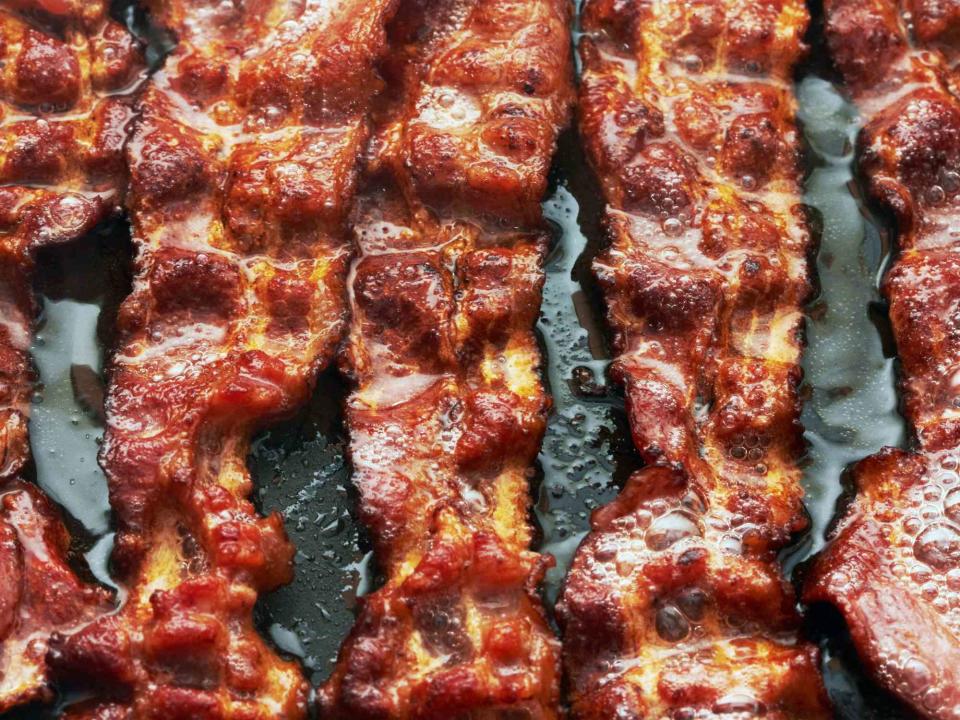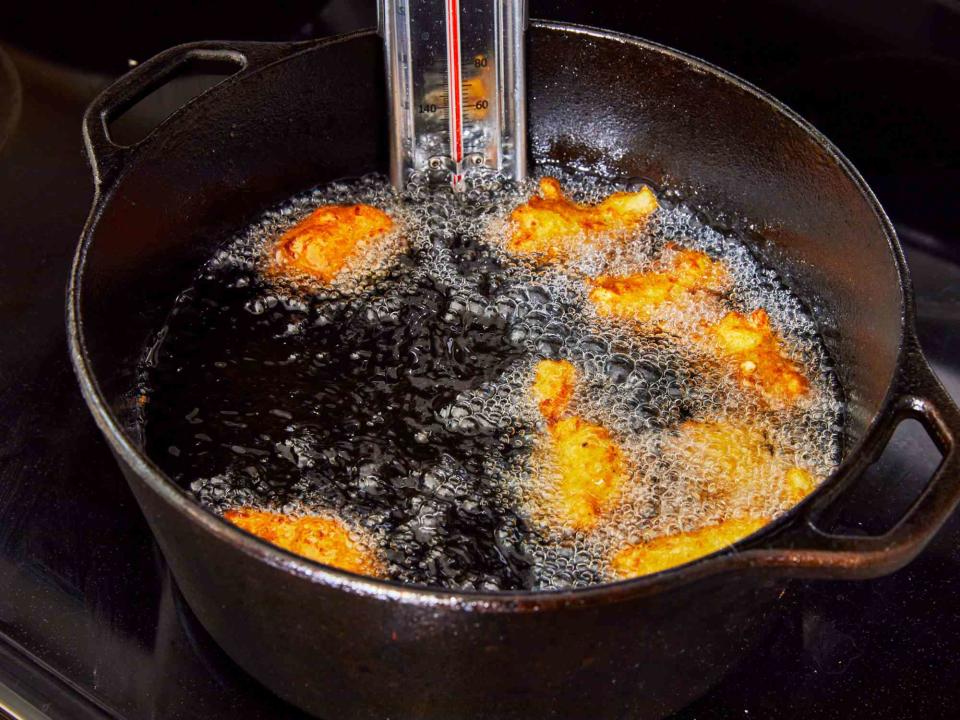How To Properly Dispose Of Used Cooking Oil
There is no getting around it: The largest chapter in a catalog of favorite Southern foods would undoubtedly be fried foods. There is fried chicken, fried okra, fried catfish, fried pork chops... the list goes on.
If we choose not to fry, it is usually for one of two reasons: We opt for a healthier cooking method, such as roasting a chicken instead of frying it, or we don't want to deal with cleaning up the cooking oil. Before you pour that hot oil in the trash or let it clog up your sink, read these tips on safely disposing of used cooking oil.
Never (Ever!) Pour Oil Down the Drain
Grandmother told you, your mama told you, and now we are telling you: NEVER pour oil or grease of any kind down the drain. When hot oil cools down, it solidifies and sticks to the inside walls of your kitchen pipes. Over time, the solids will build up and eventually clog your pipes, leading to backups, flooding, huge plumbing bills, and many headaches. This same principle applies to all plumbing, so don't throw your oil out by putting it in the toilet or in a septic system.

Getty Images
How To Safely Dispose of Used Cooking Oil
Whether you have fried a batch of chicken in a Dutch oven or a few strips of bacon in a skillet, you will likely need to dispose of some hot oil or grease. There are a few different ways to safely get rid of oil if you don't plan to reuse it.
Allow any oil to cool down after cooking, unless you keep your bacon grease when making cornbread or Lucy Buffet's Winter Gumbo, in which case allow it to cool slightly, then pour it into a heat-proof container for storage.
Option 1: Mix it with other garbage materials
After it is cooled completely, use a funnel and pour the oil into a metal can or plastic container (empty milk carton, original oil bottle, etc.). Secure the lid and put the container in the trash. Be sure the oil is at room temperature before pouring it into a plastic container; residual heat from the oil will melt the container. Also, hot oil can attract bugs and animals to your trash, which you want to avoid.
In addition to pouring oil into a container to safely convert it to trash, you can mix oil with absorbent materials to create a new "solid waste." For example, add oil to sand, flour, or cat litter, as these items will soak up the liquid.
If you fry bacon and don't want to keep the grease, wait until it cools and solidifies. Using a spatula or paper towel, scrape the grease out of the pan into a plastic bag or any empty container (empty cereal boxes work great) and then toss it in the trash.
Option 2: Freeze it
If you aren't sure whether or not you want to repurpose your cooking oil, you can always freeze it and decide later. Freezing oil takes about a day, making it solid and easier to remove. Cooking oil stored in an airtight container remains fresh for almost two years in the freezer or fridge and one year in the pantry.
Option 3: Try alternative cooking methods
Avoid the complications of properly disposing of oil and use an alternative cooking method. Kitchen tools, like air fryers, take the hassle (and grease) out of frying foods like okra and still provide crispy results.

Caitlin Bensel
How to Store and Reuse Cooking Oil
No need to let all that cooking oil go to waste. If you're planning on lots of frying in your near future (perhaps a deep-fried turkey?), consider reusing your oil to cook similarly flavored foods. Or maybe you are doing some landscaping and need a DIY weed-killer. Here are a few tips and tricks to reuse and repurpose your leftover oil.
Strain the oil
If you want to keep used frying oil for another use, you need to strain out any leftover food particles, such as those tasty bits of fried okra that linger in the bottom of the skillet. If you don't remove the food particles, it can cause the oil to become rancid or accumulate mold. Once the oil has cooled, set a coffee filter or wire mesh strainer over a bowl and slowly pour in the used oil.
Once you remove the leftover food particles, keep the oil in an airtight container at room temperature or the refrigerator. You should only store used oil for up to three or four weeks. The oil absorbs the strong flavors of whatever you are cooking—something to keep in mind if you plan to reuse the cooking oil.

Caitlin Bensel; Food Stylist: Torie Cox
Repurpose the oil outside the kitchen
The unique thing about cooking oil is that you can repurpose it into new things. One solution is to use cooking oil as a substitute for weed-killer. Cooking oil becomes a natural, non-toxic insecticide, helping to keep bugs away when combined with water to spray on infested plants.
Use a recycling center
Check with your local recycling center and ask if they accept used cooking oil. If so, use an empty gallon milk jug to collect the oil and, once full, recycle it. In some areas, you can contact local restaurants for assistance in throwing away cooking oil. After storing it in an acceptable container, you can transport your cooking oil to a restaurant equipped to handle the disposal or find a hazardous waste center that allows drop-offs.

